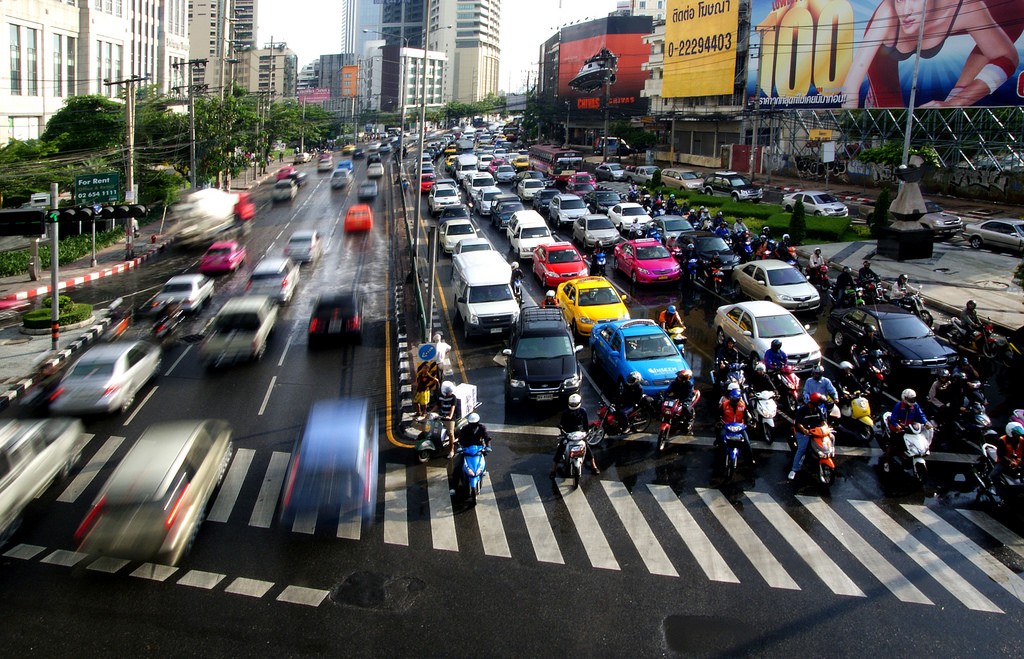Organizing Our Parking with IoT Technology
Smart parking systems integrated with IoT technology are redefining the possibilities to tackle traffic congestion and all other issues that come with it. With no other alternative being as effective, private developers, as well as local authorities are compelled to focus on smart parking solutions – which also happen to be a notable feature of most smart city projects. Read on to see how organizing parking with IoT technology proves to be the ultimate solution for traffic and parking management.

Understanding the Challenge
In the year 2010, the total number of cars on earth increased the 1 billion mark. In addition to increasing traffic congestion, the difficulty encountered in finding a parking space for a vehicle has also grown. Interestingly, an insufficient number of parking lots isn’t always the reason behind overcrowded parking. Certain localities might have ample parking space yet appear crowded due to mismanagement and disorganization of public parking lots. Other localities might have over-expensive parking lots (generally owned by private developers), compelling most drivers to park their vehicles where they ideally shouldn’t or spend too long searching for a cheaper parking space.
Giving stress to the drivers is just the tip of the iceberg. Vehicles circling around in search of parking spots have other adverse consequences too, such as traffic congestion, wastage of fuel, and environmental pollution. This makes it necessary to come up with an out-of-the-box solution, that is innovative, effective and can eliminate redundancy and revamp traditional parking systems. This is where smart parking systems come into play.
Smart parking is a strategy that makes use of technology combined with human effort, with an aim to use as few resources as possible. It utilizes sensing devices for determining the availability of parking space at a particular structure level. These sensing devices could be cameras at multiple locations, counting equipment at the entry, and sensors embedded into the pavements. The information collected by these devices is analyzed and transmitted to various channels like mobile applications and dynamic signage.
Benefits of IoT-based Smart Parking Systems
The implementation of smart parking – a gift of IoT, has made parking reservation and monitoring as swift as possible, for parking providers as well as users. GPS parking directions have made it easy to navigate while searching for a parking spot. The list of benefits of smart parking systems is quite lengthy indeed. However, there are four key advantages that set it apart. These are as follows:
- Creating Real-Time Parking Maps: Cameras and sensors placed at multiple locations can be used to detect vacant parking spots in the vicinity of a driver’s current location. If a parking spot is found to be available, then it’s location is shared with the driver. This information is relayed via a smart parking mobile application installed on the driver’s end. As a result, real-time parking maps are created which facilitate less circling, faster parking and reduced air pollution.
- Law Enforcement: City authorities continuously receive complaints about drivers violating traffic laws by incorrectly parking their vehicles in restricted areas or loading docks. IoT data collected by smart parking systems can be used to locate and penalize these violators. Not only does this discipline the drivers, but also generates additional revenue for the city via challans.
- Leveraging Information: Smart parking systems capture data in real-time. When this data is compared with historical or benchmarked datasets, it presents actionable insights that drive optimization in parking practices. Local authorities can use this information to evaluate whether more parking spaces are required in a particular locality or not. This information can also be used by them in order to prepare the city whenever a big event has to be organized.
- Revenue Generation by Data Monetization: An overwhelming amount of IoT data generated is by the numerous devices that smart parking systems make use of. This data finds use in not only the parking industry but in other areas too. By selling this data to other merchants, smart parking providers can monetize this data.
Form reducing air pollution to bringing down the number of road accidents, there is a long list of compelling reasons behind why vehicles need to be parked faster. Smart parking systems prove to be the most promising solution for this. A result of blending parking structures with the wonders of IoT technology, this wonderful ideology is the future of parking management.

